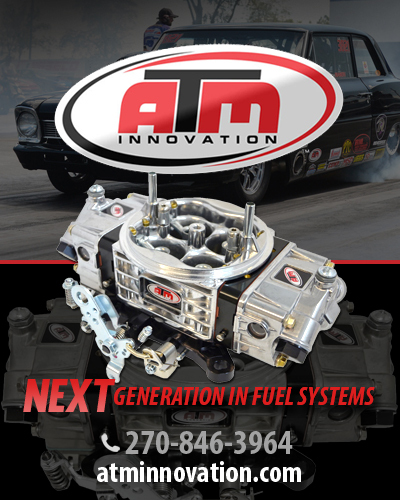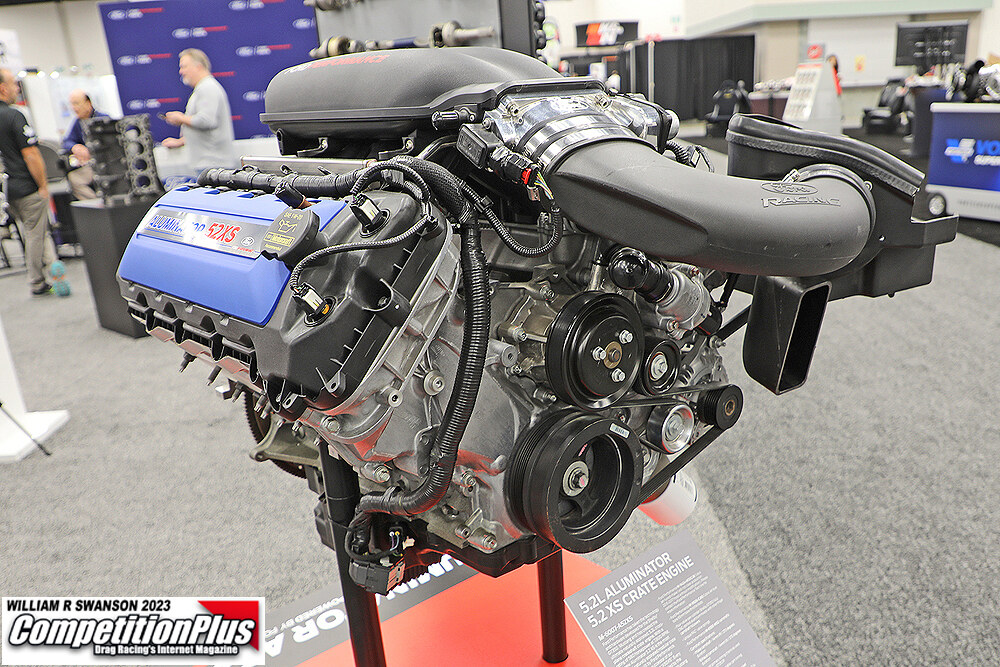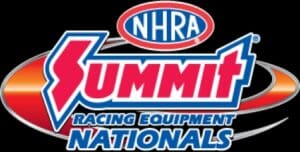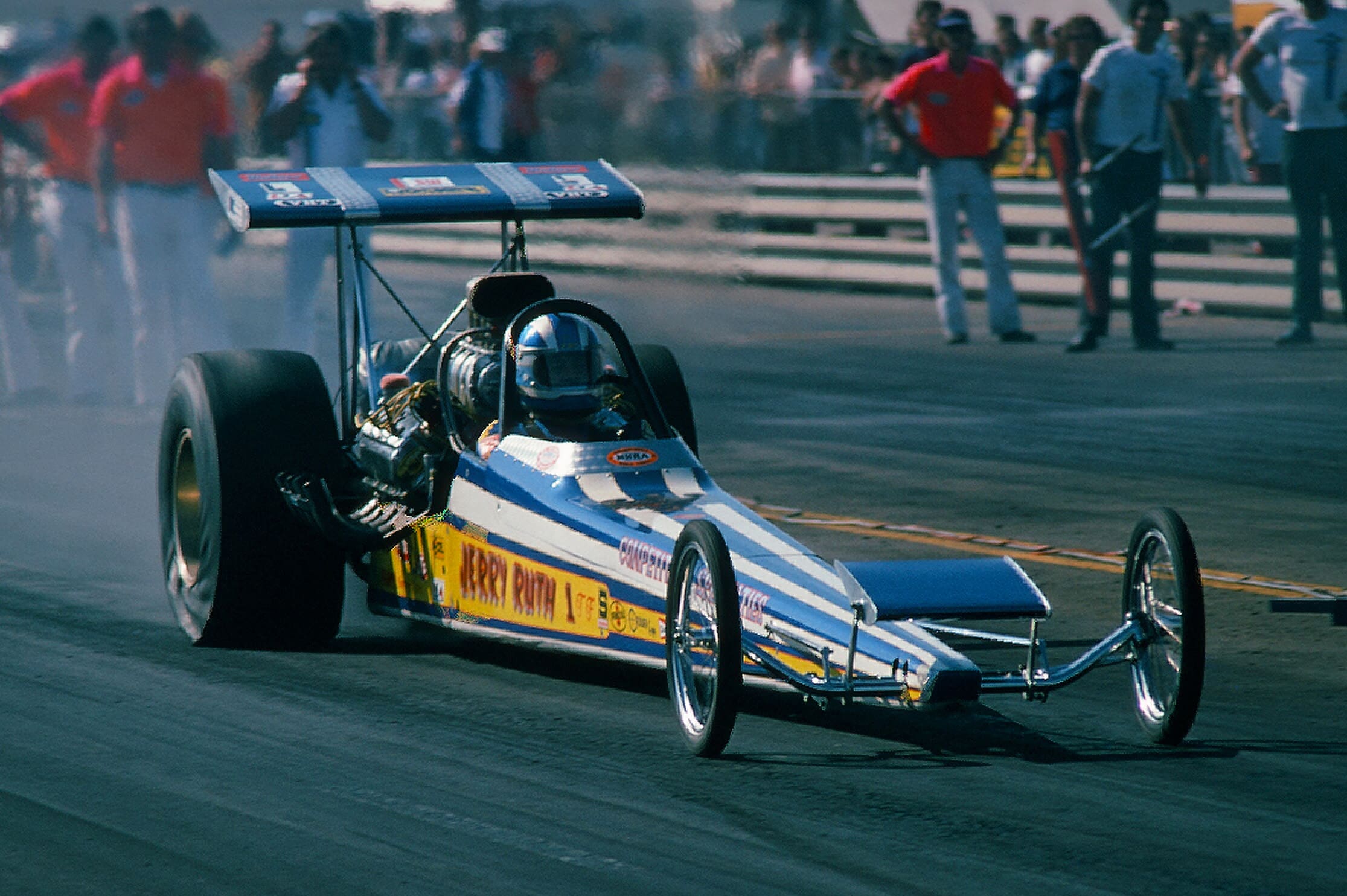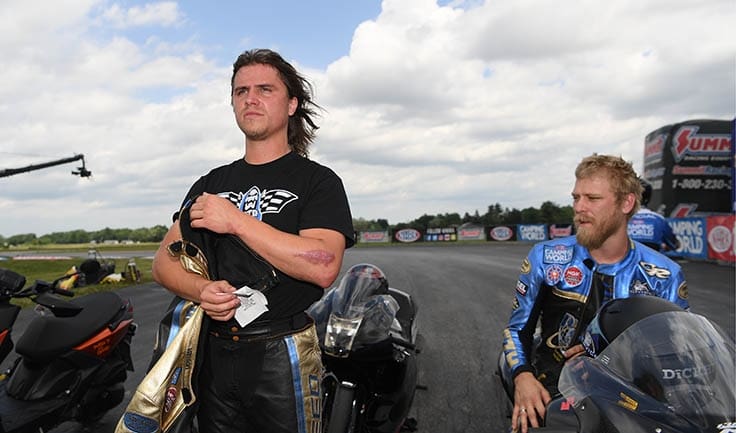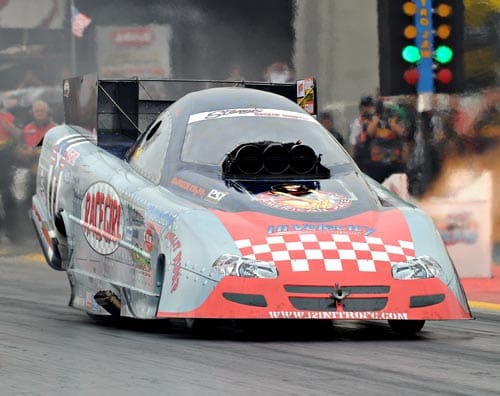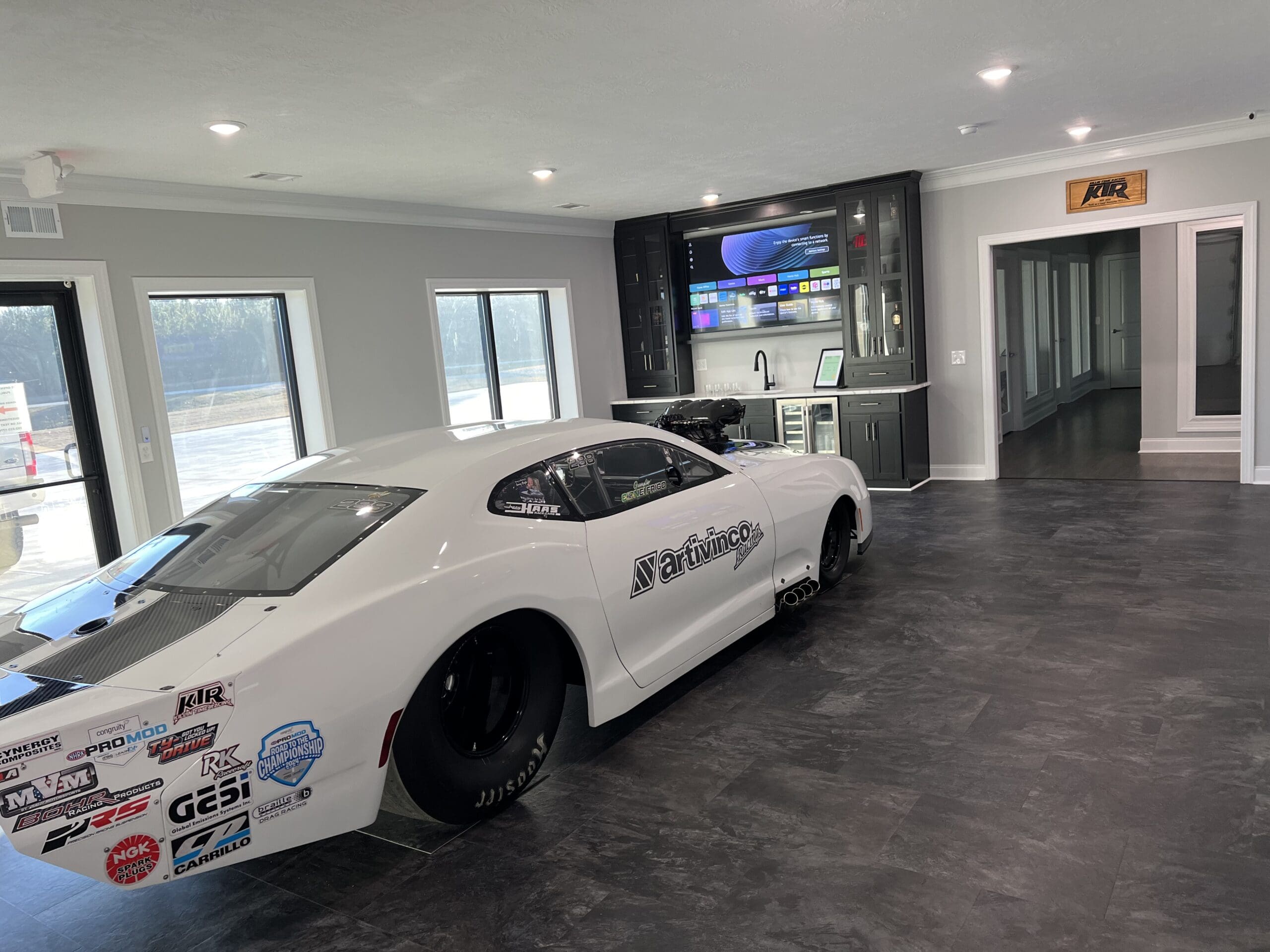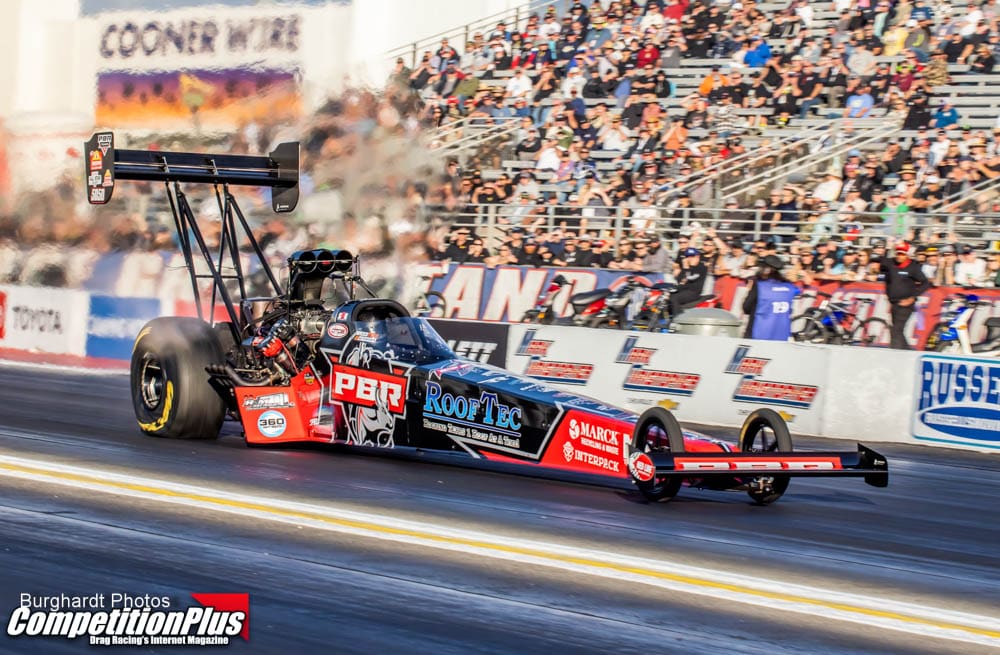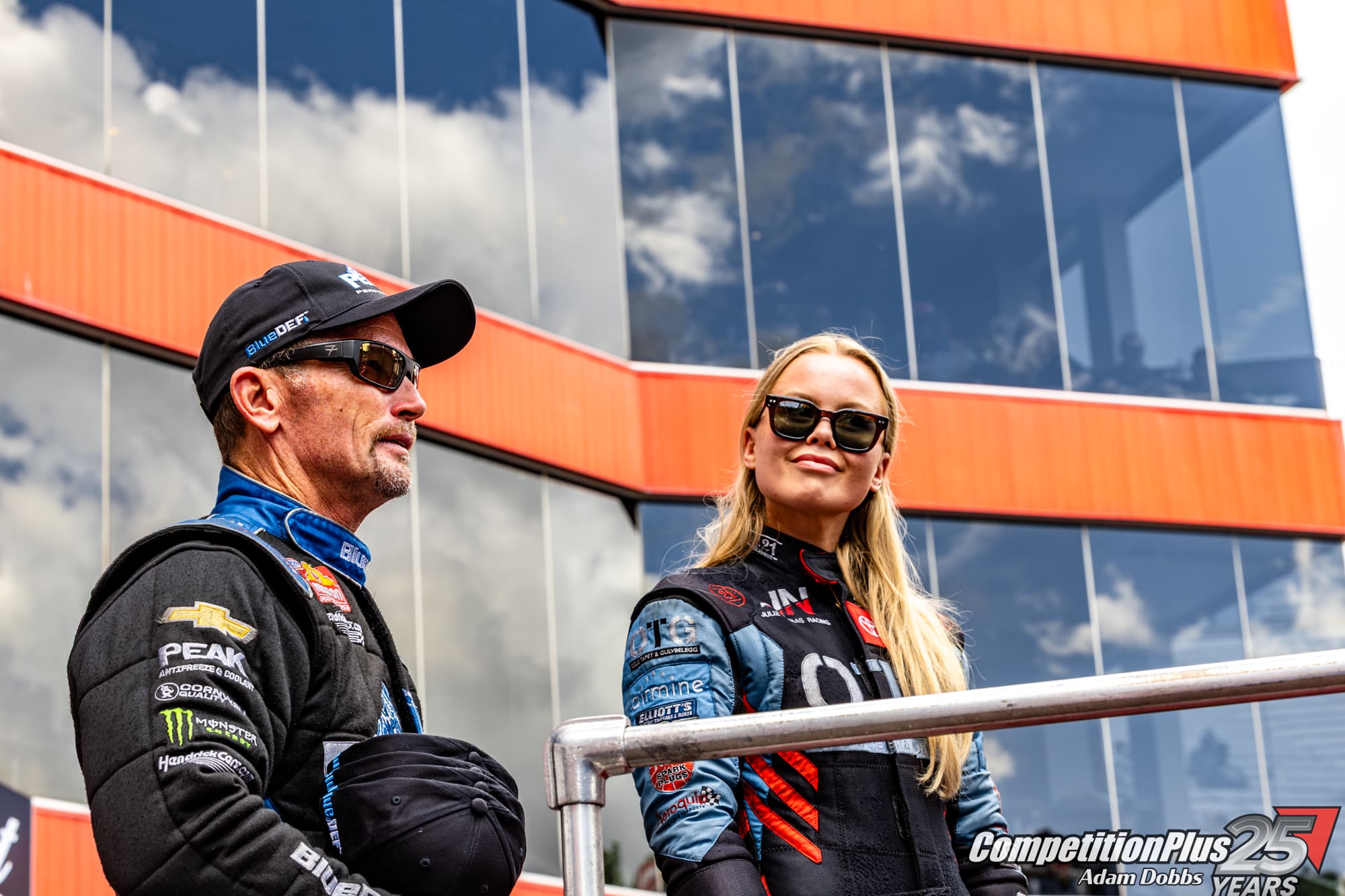It’s funny how a single incident, or two, can alter the course of an entire life.

For whatever reason, 14-car Funny Car Champion John Force, didn’t change much following the tragic loss of Eric Medlen. Instead of slowing down in one area, Force simply squeezed in another priority – safety. After his own horrific crash in Dallas, Force re-evaluated not only his racing but his entire life.
After Medlen died, Force’s focus on winning never changed, but suddenly safety was almost as important. After all, Force is not just a driver. He is a car owner with the lives of three other drivers in his hands, and one of those, his daughter Ashley, is more precious than just about anything in his life.
It’s funny how a single incident, or two, can alter the course of an entire life. 
For whatever reason, 14-car Funny Car Champion John Force, didn’t change much following the tragic loss of Eric Medlen. Instead of slowing down in one area, Force simply squeezed in another priority – safety. After his own horrific crash in Dallas, Force re-evaluated not only his racing but his entire life.
After Medlen died, Force’s focus on winning never changed, but suddenly safety was almost as important. After all, Force is not just a driver. He is a car owner with the lives of three other drivers in his hands, and one of those, his daughter Ashley, is more precious than just about anything in his life.
Does Force ever wish that he could return to those days when driving, winning and pleasing sponsors was his sole focus? Yes and no.
“That would be nice if you could do it,” said Force, who is mathematically still in the running for the 2009 championship. “Winning used to be everything, but now safety goes hand in hand. If we can’t be competitive, number one, and we can’t keep these cars safe to protect these drivers, then we don’t need to be in this business. It’s important that we make every dollar fit, but you can’t give up performance and safety. Safety has probably become my biggest overload with the Eric Medlen Project in Indy.”
The push for safety showed itself in Dinwiddie, Va., two weeks ago during the Virginia NHRA Nationals in the form of a brand new chassis design.
“It has all of the stuff that all of the Ford engineers have worked on for the past two years after we  lost Eric Medlen in ’07,” Force said. “When he lost his life in the Funny Car we got into safety. In the roll cage six months later, I got in and broke my arms and legs, but I had no head injuries. So out of all those studies that came out of Ford Motor Company, and their engineers and the Eric Medlen Project, my life was saved. These race cars have evolved, and when we unveiled our car, built under the Eric Medlen Project at John Force Racing, that car came out of the box and it was a fast race car. It ran the quickest 60-foot that we’ve seen out of our race cars in years. We’re really excited that we have safety and we think we have a better race car, and that will only be proven when we take our car to Las Vegas. Only time will tell.”
lost Eric Medlen in ’07,” Force said. “When he lost his life in the Funny Car we got into safety. In the roll cage six months later, I got in and broke my arms and legs, but I had no head injuries. So out of all those studies that came out of Ford Motor Company, and their engineers and the Eric Medlen Project, my life was saved. These race cars have evolved, and when we unveiled our car, built under the Eric Medlen Project at John Force Racing, that car came out of the box and it was a fast race car. It ran the quickest 60-foot that we’ve seen out of our race cars in years. We’re really excited that we have safety and we think we have a better race car, and that will only be proven when we take our car to Las Vegas. Only time will tell.”
There was a time when Force played the part of an invincible driver, who couldn’t be deterred by the dangers of drag racing. There was one focus – winning.
“I’ve always said that I’ve lived by Vince Lombardi, the legend, the football coach, thinking that winning is everything,” Force explained. “When we lost Eric, it was kind of like, winning is everything, but maybe Vince Lombardi never lost a man on the playing field. Football is different from race cars. It was a real wake-up call for us. Every time we crashed a car or set it on fire, we just drug out a new one, and proved we could go out there and win, or we would fix the one, but we never really addressed what happened because there wasn’t any time.”
Now, time is taken to understand every fire, every crash, everything that is normal.
Force is a different racer because of Medlen’s accident and his own crash in Dallas 2007 which nearly claimed his life. Force has a new respect for his wife and his family and the sacrifices they made as he lived the wild life. He is also a different man; a different driver.
“I’m going to be honest, they always think of retirement at 65 years old. I’m 60, and I have contracts  that go out for three or four more years, so I’m going to be in the seat for a while. I used to joke that I would spend two hours of my day, before my crash, in the bar. I was a party animal, I fought the fight, and I did everything. Physically, I thought, hey, you’re getting older, you’re tired, the days are getting longer, and then I crashed and I was in the hospital for two months.
that go out for three or four more years, so I’m going to be in the seat for a while. I used to joke that I would spend two hours of my day, before my crash, in the bar. I was a party animal, I fought the fight, and I did everything. Physically, I thought, hey, you’re getting older, you’re tired, the days are getting longer, and then I crashed and I was in the hospital for two months.
“When I came out of the hospital and I went back to my race car I realized some things. I was a guy guilty of chasing the dream, the championship, and I kind of left my family behind. I always say that NHRA took me away from my family, but with my kids racing, the NHRA gave them back. I thought I was going to lose my life when they put me in that helicopter in Dallas after I crashed. I seen it with Eric, and it gave me a wake-up call for two things. One, get your mind right with the good Lord, and two get your mind right with your family. Beyond those two things was driving that race car.
“Now I’m in the gym two hours a day, and my guys say if you don’t take Sunday off you’re going to kill yourself, but I love the gym. It made me a different person health-wise. I actually have got muscle. I haven’t seen a muscle on my body since college. I believe that I said that I’m going to drive this race car until I drop. I can’t stay in this car when I can’t drive the car and do the job, but I’m better on my reaction times now then I was five years ago. I get up every day with energy and I close every day with energy. Every day that I dream and I turn on the radio, I think about winning, and that’s what makes me tick.”
Advertisement











